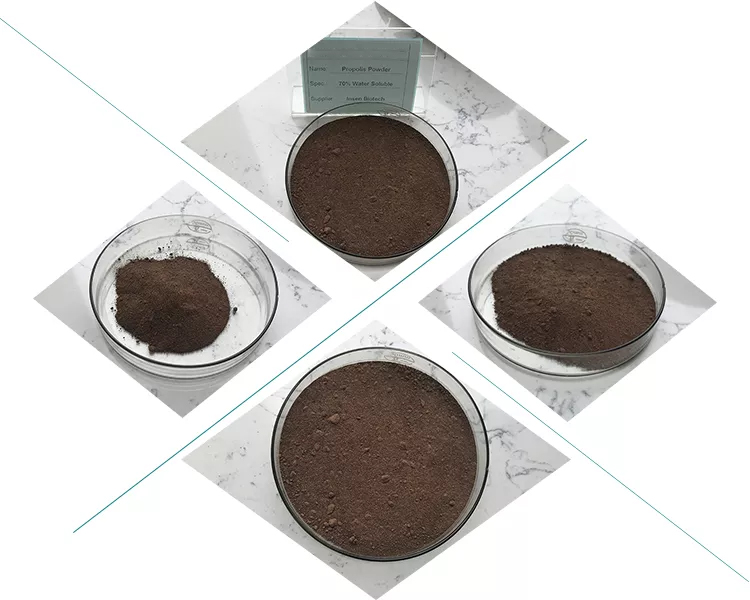Propolis powder is derived from the resinous substance that bees collect from tree buds, sap flows, and other plant sources. It has been traditionally used in various cultures for its antimicrobial, anti-inflammatory, and antioxidant properties. While propolis itself has gained attention for potential health benefits, including its effects on diabetes, it’s important to note that research is still ongoing.
Potential Benefits for Diabetes:
- Antioxidant Properties: Propolis contains flavonoids and polyphenols, which are powerful antioxidants that can help reduce oxidative stress, a key factor in the development and progression of diabetes. This may help protect pancreatic cells from damage and support better insulin function.
- Anti-inflammatory Effects: Chronic inflammation is a significant factor in both Type 1 and Type 2 diabetes. Propolis may help to reduce inflammation and improve insulin sensitivity, potentially aiding in better blood sugar control.
- Blood Sugar Regulation: Some studies have shown that propolis may help in regulating blood sugar levels. It may support the pancreas in producing insulin more effectively or improve the cells’ sensitivity to insulin, helping to maintain healthier blood glucose levels.

- Wound Healing: Diabetic individuals often experience delayed wound healing due to poor circulation and high blood sugar. Propolis has been shown to have wound-healing properties and could potentially be beneficial for those with diabetes-related skin issues or infections.
Scientific Evidence:
While there is promising preclinical (animal) and some human-based research on propolis for diabetes, it is not yet a fully established treatment. Research on humans has shown some positive results, but the evidence is still limited, and more large-scale clinical studies are needed to confirm its effectiveness.
How to Use Propolis Powder for Diabetes:
- Dosage: The proper dosage of propolis powder can vary depending on the formulation and brand. Some studies have used doses ranging from 100 mg to 500 mg daily. It is important to follow manufacturer instructions or consult with a healthcare professional for personalized advice.
- Formulation: Propolis powder can be added to teas, smoothies, or capsules. You can also mix it with honey (if not diabetic) for its natural antimicrobial properties.
- Side Effects: Propolis is generally considered safe for most people, though it can cause allergic reactions in individuals sensitive to bee products. Always consult with a healthcare provider before adding propolis to your regimen, especially if you are on medication for diabetes, as it might interact with blood sugar levels or insulin.

Precautions:
- Allergy Risk: Since propolis is a bee product, it may cause allergic reactions in individuals who are allergic to bee stings or honey.
- Blood Sugar Monitoring: If you decide to use propolis, it is essential to monitor your blood sugar regularly to ensure it is not affecting your levels in unexpected ways.
- Medical Consultation: Always check with your healthcare provider before using propolis, especially if you are pregnant, breastfeeding, or taking medications.
In summary, propolis powder may offer potential benefits for diabetes management due to its anti-inflammatory, antioxidant, and blood sugar-regulating properties. However, more research is needed to fully understand its effectiveness and safety for this purpose.
